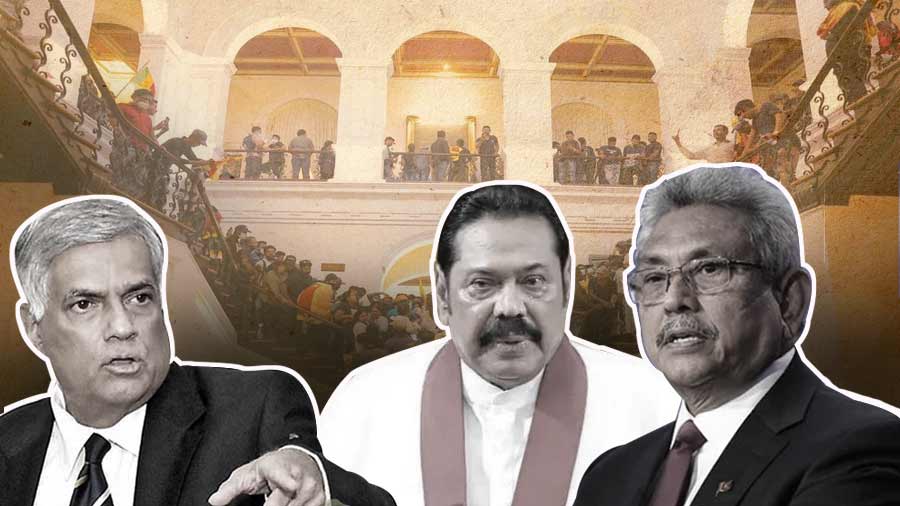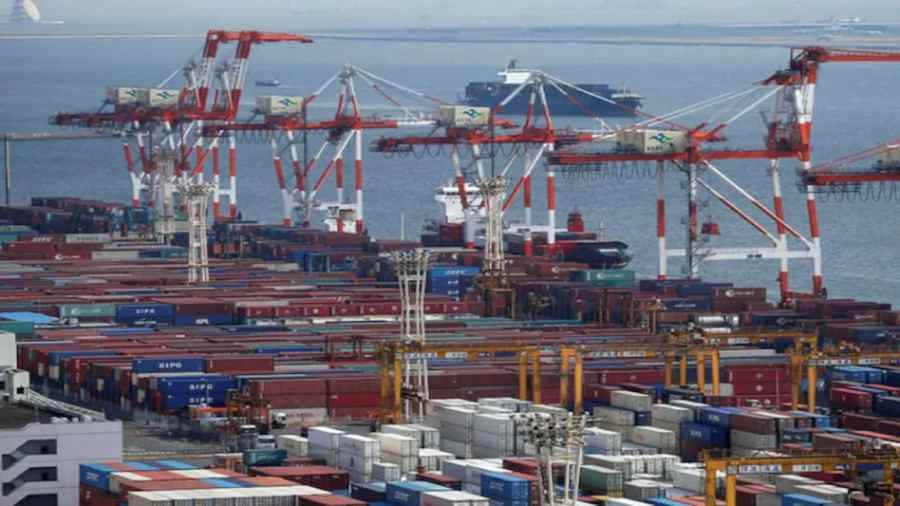The current crisis in Sri Lanka provides an opportunity to both rebuild the nation economically and fulfill the aspirations of the Tamil people, refugees from the island nation said here on Wednesday.
A new breed of leaders who shun hegemony and ethnicity-based politics should lead the government formation initiatives and in their effort they should involve all sections of people, including the Tamils and Muslims. This would lead to collaborative and determined action, they said.
Out of the 112 Tamils who reached Tamil Nadu recently after their country plunged into a crisis, a woman has died and others are housed by the government in the southern Ramanathapuram District.
The crisis in Sri Lanka which encompasses terrible shortage of food and fuel, riling power cuts and absence of job opportunities are all nothing new for the Tamil people in the north and east provinces, an inmate of a refugee camp here said.
"This is not new for the Tamil people. At least for 40 years, Tamils lived without electricity and faced shortage of every kind," said R Padmanathan.
A native of Mullaithivu District in northern Sri Lanka, and an inmate of the Puzhal Refugee Camp on the northern outskirts of Tamil Nadu's capital, Padmanathan told PTI that the crisis, once faced only by Tamils in the regions they lived have now gripped the whole country.
"It is a cause for serious concern, but it also shone light on the failures of the ruling class and people have understood that they have been duped by politicians," he said. The future lies in giving up 'hegemony politics' and taking along everyone to reconstruct the nation, he added. Tamil political parties in Sri Lanka have assured their full support to inclusive initiatives like power sharing to rebuild Sri Lanka.
"The Tamil diaspora which has considerable economic heft have also come forward to back Lanka to the hilt, provided a roadmap is presented to fulfil the aspirations of the Tamil people," he said. The refugee camps in Tamil Nadu have been renamed as Rehabilitation Camps last year by the government.
DMK spokesperson K S Radhakrishnan said the crisis faced by the Tamil people in Lanka was at least 10 times worse -during the 2009 war- than the present one. "However, the Tamil leaders did not desert the people even during trying times," he said.
Other refugees, living elsewhere and requesting anonymity said the situation in the Tamil regions of Sri Lanka did not change for the better even after the war ended in 2009.
"We are talking about very basic amenities and requirements. Tamils in Sri Lanka did not get even that. We are accustomed to crisis situations. So, no one can understand the pains and perils of the crisis situation better than us."
It is the hope of the Tamil people in Sri Lanka that a new dispensation could rebuild the nation economically and fulfill their aspirations by burying 'hegemony' and 'ethnicity' brand of politics.
The initiative to pay homage in Sri Lanka to the Tamil civilian victims of the 2009 war was spearheaded by the Sinhalese youth, they said.
"This shows a change of heart of the Sinhalese people. They have started realising that the political class they relied on, have belied their hopes and aspirations."
Despite the persuasions of the United Nations and several countries, no solution is in sight as regards the basic issues faced by the Tamil people, though 13 years have gone by after the 2009 war in which the Lankan Army decimated the LTTE.
Even politically, the stand of mainstream parties does not appear to have changed to give hope to Tamils, they said.
The current struggle against the ruling establishment is predominantly steered by the Sinhalese and the Tamil people did not take part in the present uprising in a big way as they had already suffered for years, Tamil refugees said.
The Tamil people in Lanka welcome India's humanitarian aid to all the people including the Sinhalese, they added.
"Such gestures by India go a long way in facilitating further strengthening of people to people relationship in Sri Lanka, transcending all barriers created by the political class and we want India's support," they said.
Sri Lanka faces economic crisis triggered political turmoil and the country battles huge debts, shortage of food, cooking gas, fuel and medicine. Sri Lankan President Gotabaya Rajapaksa has fled to Maldives from where he appointed Prime Minister Ranil Wickremesinghe as the acting President.












